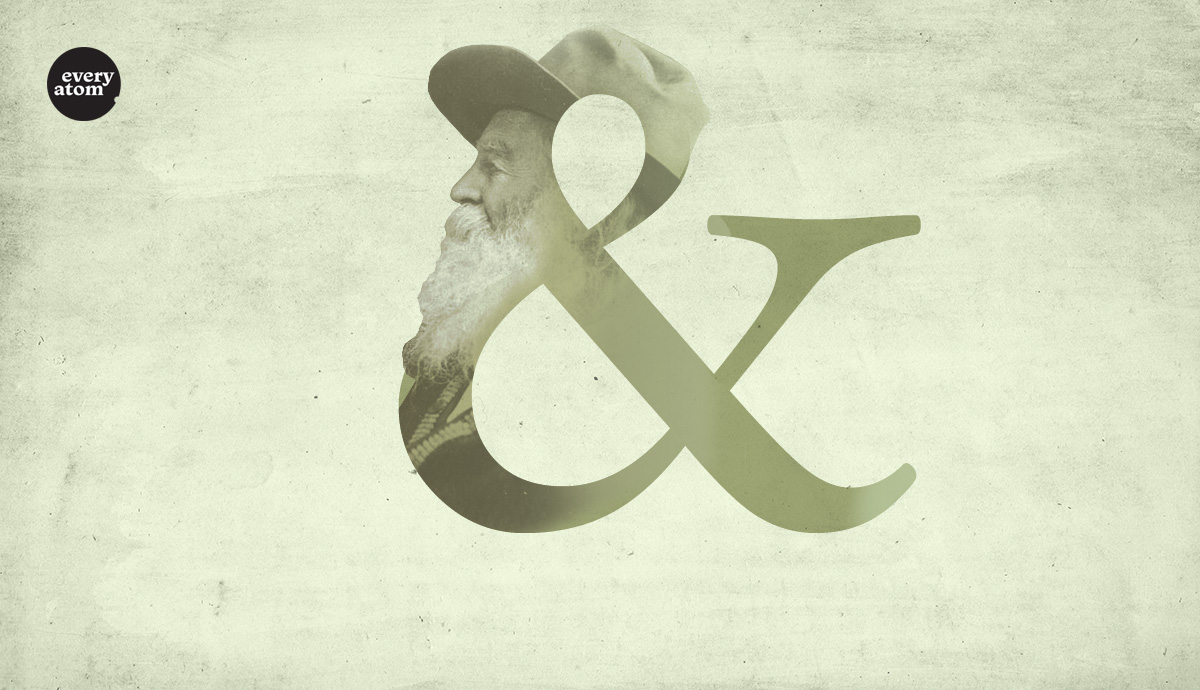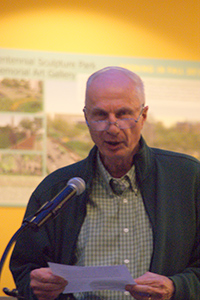Every Atom | No. 26
Introduction to Every Atom by project curator Brian Clements
When I was a young college professor, not yet thirty & shy & unsure of myself (to say the least) & uptight in many ways, I interviewed (with poet Allen DeLoach) Allen Ginsberg. I was mesmerized, in awe, couldn’t concentrate. Thanks to the author of “Howl”—maybe our greatest poem since Whitman—& other poems I admired, it went well, Ginsberg affable & serious, playing his harmonium, singing of love & death & eastern spirit. An hour or two after I left the television studio, I sat in the college union by myself, dazed, unwinding, hiding behind my coffee, when Ginsberg came in with Paul Blackburn, DeLoach, & a several other Beat insiders. After a few minutes, Allen saw me, stood up, swept an arm toward me—“Hey, Bill, come on over.” I’ll never forget this inclusive thoughtfulness, this invitation to the tremulous assistant prof in his tie & jacket from the most famous poet in America. “Come on over,” & I did, & I have, & since, as Walt says, time & space avail not, abiding thanks, Allen.
Inclusion. I think of the stunning catalog of Americans in the first edition of Leaves of Grass (the one that became section 15 of what became “Song of Myself”). We had nothing this democratic, this filled with fellow-feeling before. From contralto & carpenter to the President & a prostitute, to pedlar & bride & pikefisher & scores of others who are part of river & farm & forest & prairie & what he earlier called “the blab of the pave,” Whitman sings us all. & we listen to such rhythmic scenes as “The young sister holds out the skein, the elder sister winds it off in a ball and stops now and then for the knots,” & “The crew of the fish-smack pack repeated layers of halibut in the hold.” & then, & then!—what is he going to do to answer the “so what?” question that every poem has to answer?—he rounds into closure with two all-inclusive lines that draw all of us together, lines that might serve as his eternal epitaph, the unforgettable “And these one and all tend inward to me, and I tend outward to them, / And such as it is to be of these more or less I am.” “Tend” going both ways, universal reciprocal motion. & the qualifying “more or less,” yes, of course, but he is one of us nevertheless. Walt calls Allen Ginsberg & you & me over to the unlimited leaves of his immortal table. Camerado, come on over.
Recommended
Nor’easter
Post-Op Appointment With My Father
Cedar Valley Youth Poet Laureate | Fall 2024 Workshop







